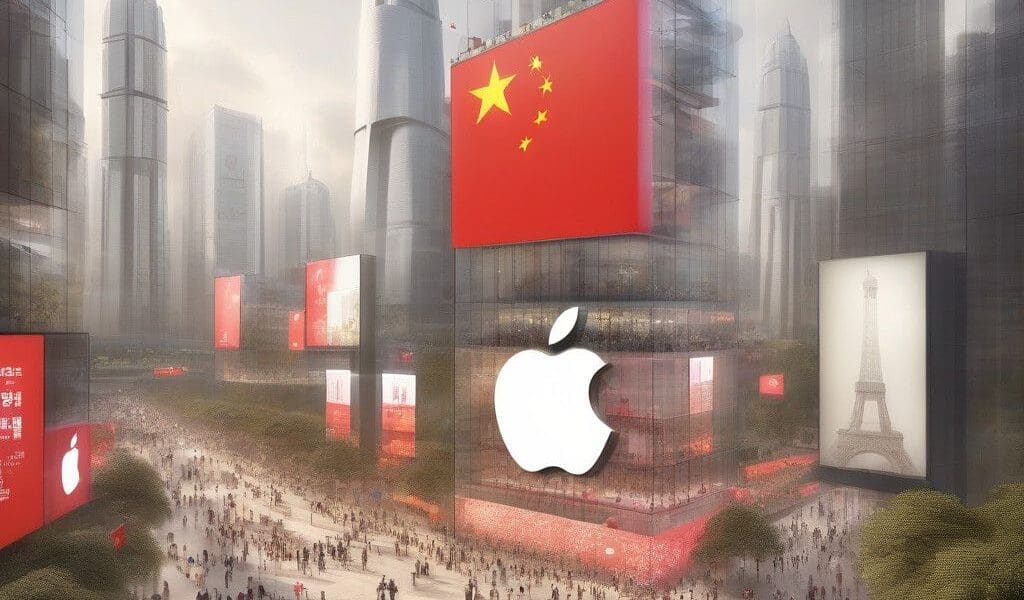China Invites Apple to Expand in Local Market
In a significant development for international business relations, China has reiterated its welcoming stance towards Apple Inc., suggesting an opportunity for the tech giant to broaden its influence in one of the world’s largest consumer markets. During a recent meeting between Apple CEO Tim Cook and Chinese Commerce Minister Wang Wentao, the minister expressed an openness to further Apple’s growth within China, emphasizing a desire to strengthen Sino-US economic ties during a period marked by considerable geopolitical tension.
Wang’s comments are not merely ceremonial; they reflect a broader strategy by the Chinese government to stabilize and enhance its trade relationship with the United States, which has faced challenges in recent years. The minister specifically noted the importance of constructive dialogue between governmental bodies and corporations, stating that such interactions could lead to a more stable trade partnership. This aligns with Apple’s ongoing commitment to the Chinese market; the company has been a leading player in China’s tech landscape, but recent economic and political strains necessitate a careful approach moving forward.
The context of this discussion is essential. China is facing economic pressures that have prompted it to seek foreign investment as a means of revitalizing its economy. By extending an invitation to Apple, the Chinese government signals its desire for long-term partnerships with multinational corporations, which can contribute not just capital but innovation as well. Apple, having faced scrutiny regarding its supply chain and production facilities in China, must navigate these waters carefully. The company is under pressure from both US authorities to demonstrate security compliance and Chinese regulators expecting enhanced local practices.
In addition to emphasizing economic collaboration, Wang highlighted ongoing improvements to China’s business environment. This includes assurances of high-quality services for foreign companies, a signal that China is keen on attracting international talent and investment. But with a caveat—Wang also pointed out the need to balance national security priorities with trade relations, hinting that excessive security measures could hinder economic interactions. This reflects a delicate balancing act where economic imperatives are weighed against rising nationalism and security concerns in both countries.
The invitation for Apple to expand comes at a time when the tech landscape is evolving rapidly, marked by advancements in artificial intelligence and renewable energy. Apple has already demonstrated interest in innovation, investing heavily in research and development of new technologies such as AI and augmented reality. This could fit well within China’s “Made in China 2025” initiative, which aims to position the country as a global leader in high-tech manufacturing.
Consider the ramifications of Apple boosting its operations within China. Increased production within the country would not only benefit Apple financially but could also enhance its ability to tailor products to local consumer preferences, which is crucial in a market known for its unique demands. For example, the growing appetite for smart home devices and health-related gadgets presents an opportunity for Apple to leverage its ecosystem and expand its footprint.
Furthermore, by deepening its ties in China, Apple can secure more favorable terms for its products and potentially reduce tariffs that have been a point of friction in the past. The company has encountered challenges such as the backlash against foreign entities in China, which could potentially be eased through improved relations sparked by this meeting.
In conclusion, China’s invitation for Apple to expand symbolizes a pivotal moment in international business. It underscores the importance of dialogue and cooperation in today’s complex global economy. As both nations continue to navigate their respective priorities—economic growth and national security—the outcomes of such interactions will have lasting implications for the tech industry and global trade dynamics.
This news brings both optimism and caution. Companies looking to invest in China must evaluate their strategies meticulously, ensuring they align with local regulations while advancing their corporate goals. Apple’s experience could serve as a model for other companies aiming to penetrate the Chinese market while addressing the multifaceted challenges of operating in a politically charged environment.








